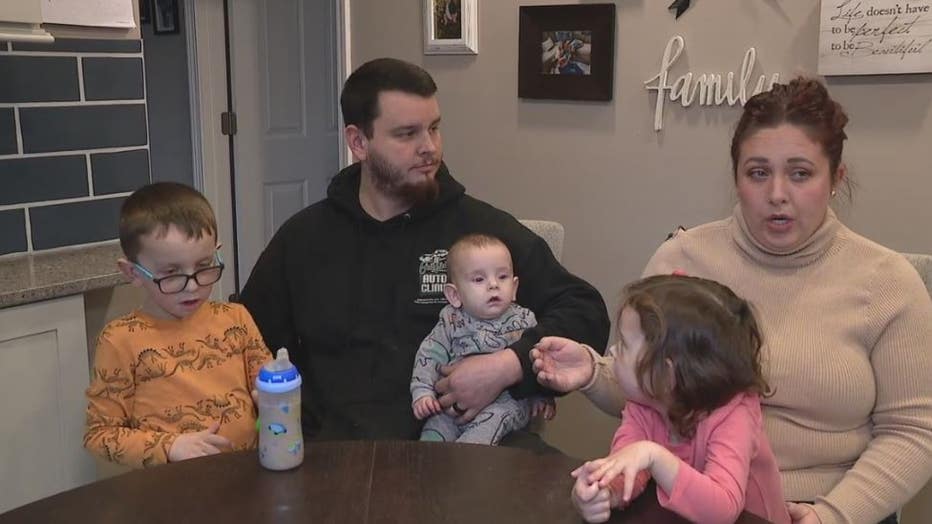Genetic screening tests can help families get treatment for birth defects, sometimes avoid them
FOX 2 (WJBK) - This year Governor Gretchen Whitmer declared January Birth Defects Awareness Month. The numbers are staggering and many of these cases are preventable.
America has the highest infant and maternal mortality rates of any other high-income country and birth defects are the leading cause of infant mortality in the U.S. But awareness and screening can go a long way.
"I was 17 weeks pregnant when I had the Amniocentesis," said Victoria Garcia.
Victoria and Fred Garcia discovered their first child Jaxon would be born with spinal muscular atrophy - SMA - when she was still pregnant. It is a genetic condition that can shorten life expectancy. It was terrifying for them.
"It was very difficult to read that about your first unborn child," said Victoria.
"This was our first time actually hearing about this and we knew nothing about it at all," said dad, Fred Garcia. "For both of us, it was a big learning curve."
But their doctors at Corewell Health were able to get baby Jaxson treatment days after birth.
"He received Spinraza at four days old," Victoria said. "At the time he was the youngest ever to be treated. Without that, his quality of life would be much less."
Their second child also has the rare genetic condition and she too, was able to get very early treatment.
"We were very lucky to be prepared ahead of time," Fred said.
Every 4.5 minutes a baby is born with a birth defect. Maternal fetal medicine specialist at Corewell Health Dr. Zeynep Alpay-Savasan emphasizes screening.
"We have very early, genetic screening tests that are available right now," she said. "The earliest we can do a genetic screening for Down syndrome or Trisomy, is around 10 weeks."
Not all birth defects are congenital. Some can be avoided by improved pre-natal care.
"Reaching out to the primary care physician or OBGYN, or maternal care medicine pre-conception," she said. "To identify what risk factors they have and have a plan for the pregnancy ahead of time."
One in 33 U.S. babies is affected by birth defects each year. And every pregnancy, a woman starts out with a 3% chance of having a baby with a birth defect, regardless of underlying health conditions or lifestyle.

Fred and Victoria Garcia and their family.

